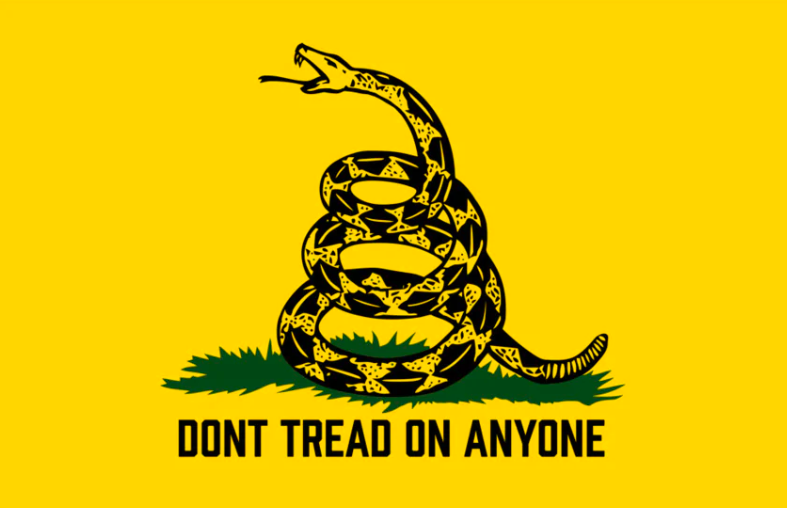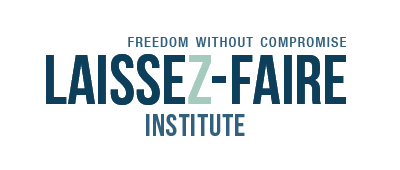janarchism: from the name Jan + Ancient Greek ᾰ̓ρχή, sovereignty : sovereignty for every Jan, the philosophy that every person has the same identical and universal right not to be aggressed upon by others, and the symmetrical duty not to aggress others.
I’m a janarchist. I want rights: the right not to be killed, stolen from, aggressed in any other ways, etc. I want them for me, Jan. How can I get these rights? How can I live in a society where my rights are secured, for me, Jan?
There are other Jans. Do I have a more unique claim on those rights than them? Certainly not: I could try to pretend I do, but it will be hard to convince anyone. Many have tried. Many have failed. I might as well acknowledge the truth: my claim to those rights extends to all other persons named Jan as well. My claim is the same as theirs, no more, no less.
But a name can hardly be a source of rights. Should I have less rights if my name were Tom instead? And imagine if I were somehow unable to prove my identity: should I be at the mercy of being murdered without consequences if I forget to wear my name tag? How could I ever prove beyond any doubt that I belong to the rights-bearing category, and not the other one? If Jans have rights but not Toms, how can I be sure that I shall always be able to prove I am a Jan and not a Tom?
Once arbitrariness replaces Universal Law, no one is safe:
Встречаются два зайца в поле:
– Отчего ты так бежишь, запыхался даже?
– А ты разве не слышал, объявили, что всех верблюдов будут кастрировать?
– Так ты же не верблюд!
– Ну да… Поймают – кастрируют, а потом доказывай, что ты не верблюд.
Бегут зайцы через границу СССР. Их спрашивают:
– Почему вы убегаете?
– Потому что будут арестовывать всех верблюдов.
– Но вы же не верблюды?
– Так поди докажи НКВД, что ты не верблюд!
Two rabbits on a road during the Stalinist terror of 1937.
First rabbit: “Where are you going in such a hurry?”
Second rabbit: “Haven’t you heard? There’s a rumor going around that all camels are to be castrated!”
First rabbit: “But you’re not a camel!”
Second rabbit: “Once they catch you and castrate you, try proving that you’re not a camel!”1
The surest, the one and only way, for me to have my rights secured for myself, is if they are also secured for anybody I could be confused with.
Therefore, whether I be altruist or selfish, I have no choice but to extend those rights to, well, pretty much everyone else too (with a name, whether that name be Jan or not, or even without a name: everyone, just to be safe; after all, my life is at stake).
Οὐκ ἦν τι καθ’ ἑαυτὸ δικαιοσύνη, ἀλλ’ ἐν ταῖς μετ’ ἀλλήλων συστροφαῖς καθ’ ὁπηλίκους δή ποτε ἀεὶ τόπους συνθήκη τις ὑπὲρ τοῦ μὴ βλάπτειν ἢ βλάπτεσθαι.
Justice is an agreement to neither harm nor be harmed
– Epicurus (341—271 B.C.E.), an early Janarchist
You might say: there could therefore be many other words to say the same thing then. Well, sure. If feminism means the same rights for women as for men, and defending the rights of women, then it means the exact same thing as masculinism – the same rights for men and women, and defending the rights of men. If nationalism means what’s best for the inhabitants of a country, then it means the exact same thing as egalitarianism, in the sense of equal rights for all, and does not conflict with any other nationalism. See François Guillaumat: “La rationalité comme seul critère de distinction entre les normes politiques”. Janarchism is, of course, similar to anarchism and panarchism, which are equivalent to laissez-faire, libertarianism, humanism, the identity of rights of all human beings, (Natural) Law: the only non-contradictory philosophy of Law. Properly reasoned out, all correct starting points have libertarian universalism as the only answer.
The best way to have your rights protected, therefore, is:
- Don’t infringe on the rights of others – don’t be a criminal.
- Strive for a society where everyone’s rights are better protected – be a libertarian.
Stated another way:
Since property rights are thus a fact of logic, they are by extension a fact of nature, inescapable and absolute. This is what libertarians mean by the phrase “property rights are natural,” and that they have pre-existed their practical recognition or protection by any human institution. In the same way, two plus two has always equaled four, even thousands of years ago, whether or not any primitive tribesmen and women existing at the time could themselves have grasped the concept.
In other words, you can’t treat others like savages, i.e. violate their property rights, and then expect to have your own dignity respected in return. This is different than saying you shouldn’t treat others like savages, or you ought not violate other’s property. It’s more like saying, you shouldn’t treat others like savages, provided that you do not want to be treated like a savage yourself.
Slaveholders, when talking about their right to their slaves, always assume their own right to themselves. What slaveholder ever undertook to prove his right to himself? He knows it to be a self-evident proposition, that a man belongs to himself—that the right is intrinsic and absolute. In making out his own title, he makes out the title of every human being. As the fact of being a man is itself the title, the whole human family have one common title deed. If one man’s title is valid, all are valid. If one is worthless, all are. To deny the validity of the slave’s title is to deny the validity of his own.
Theodore Dwight Weld, The Bible Against Slavery, 1838.

The opposite of Law is nihilism, which equates to might makes right: the rule by brute force. Law or nihilism, you have to choose: either abide by the Law and help ensure its protection for all, or, violate it, live like a savage, but don’t be surprised at the consequences on you. Below some infamous examples of those who either made the wrong choice consciously, or thought they could have their cake and eat it too, to have their own rights protected while happily violating those of others:
-
Maximilien Robespierre: “the architect of the French Revolution’s Reign of Terror … Robespierre encouraged the execution, mostly by guillotine, of more than 17,000 enemies of the Revolution. Cause of death: Guillotine”
-
Генрих Григорьевич Ягода: “Appointed by Joseph Stalin, Yagoda supervised arrests, show trials, and executions … supervised construction of the White Sea–Baltic Canal … during which 12,000–25,000 laborers died. Like many Soviet NKVD officers who conducted political repression, Yagoda himself ultimately became a victim of the Purge.”
-
Лавре́нтий Па́влович Бе́рия: “Following the Soviet invasion of Poland in 1939, he was responsible for organizing purges such as the Katyn massacre of 22,000 Polish officers and officials … Beria administered the expansion of the Gulag labour camps … Beria’s ruthlessness in his duties and skill at producing results culminated in his success in overseeing the Soviet atomic bomb project … he was tried for treason and other offenses, sentenced to death, and executed”
-
Николай Иванович Ежов: “organized mass arrests, torture and executions during the Great Purge … subsequently admitting in a confession (that he later claimed was taken under torture) to a range of anti-Soviet activity including ‘unfounded arrests’ during the Purge. He was executed in 1940 along with others who were blamed for the Purge.”
-
Никола́й Васи́льевич Крыле́нко: “Krylenko was an exponent of socialist legality and the theory that political considerations, rather than criminal guilt or innocence, should guide the application of punishment. Following interrogation and torture by the NKVD, Krylenko confessed to extensive involvement in wrecking and anti-Soviet agitation. After a trial of 20 minutes, he was sentenced to death by the Military Collegium of the Soviet Supreme Court, and executed immediately afterwards.” (He is quoted at the start of Солженицын’s Архипелаг ГУЛаг: “В эпоху диктатуры и окружённые со всех сторон врагами, мы иногда проявляли ненужную мягкость, ненужную мягкосердечность.” [“In the period of dictatorship, surrounded on all sides by enemies, we sometimes manifested unnecessary leniency and unnecessary softheartedness.”]
… and many others:
Le successeur de Iejov, Beria « nettoie » le NKVD, et force en 1939 plus de 7 000 collaborateurs (plus de 22 % du total) à quitter le service. De la fin 1938 à la fin 1939, il fait incarcérer en tout 1 364 membres du NKVD, et en outre change presque tous les responsables du NKVD sur le plan des administrations des républiques et des territoires. Les cadres du NKVD de rang particulièrement élevé sont fusillés.
Beria réhabilite quelques victimes de l’ère Iejov. Simultanément, sous sa règle, la lutte contre les « parasites », les « conjurés » et les « ennemis » continue, et ce avec les mêmes méthodes qui ont été reprochées aux autres collaborateurs du NKVD. L’extension de ces poursuites diminue cependant, parce que les objectifs de la tête de la direction politique autour de Staline ont changé. En outre, il n’y a plus d’opération de masse.
Beaucoup de membres de troïkas sont eux-mêmes réprimés. Jusqu’en 2009, des données biographiques suffisantes ont pu être exploitées pour 169 cas. 47 représentants du NKVD, 67 membres du Parti et 2 représentants du ministère public ont été condamnés à mort.
you are under no compulsion to accept my creed; that you are, so far as I am concerned, absolutely free to follow the torch of your reason according to your conscience; and I believe that you are civilized to that degree that you will extend to me the right that you claim for yourselves.
Give to every other human being every right that you claim for yourself.
– Robert Green Ingersoll, “The Limitations of Toleration”, May 8, 1888
I want to be free. It’s easier for me to be free if you’re free.
– Russell Means


